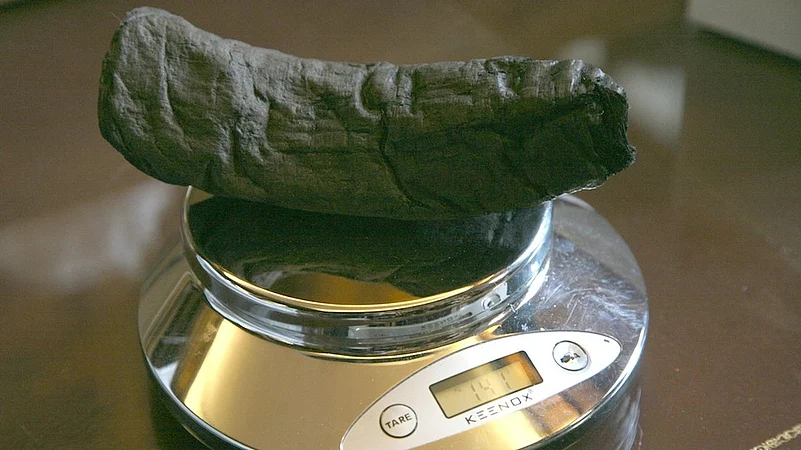The fiery eruption of Mount Vesuvius in 79 AD buried the Roman city of Pompeii under ash, preserving a snapshot of life frozen in time. But the disaster also encased a treasure trove of knowledge in the form of papyrus scrolls, their contents seemingly lost forever. Until now.
Students Decipher 2,000-Year-Old Scroll Burnt By Vesuvius Using AI
Three students, using AI, have deciphered ancient Caesarean text that was burnt to carbon by the volcanic eruption of Mount Vesuvius.

Three students – Youssef Nader, Luke Farritor, and Julian Schillinger – not steeped in ancient philosophy, but armed with the power of artificial intelligence. They cracked a code that eluded scholars for centuries, deciphering 2,000 characters from a 2,000-year-old scroll, charred and carbonized by the volcanic fury.

This wasn't just any scroll. It belonged to Lucius Calpurnius Piso Frugi, Julius Caesar's father-in-law, and was believed to be part of a vast library unearthed in Herculaneum, Pompeii's sister city. The scrolls, however, were cursed – the intense heat had transformed them into fragile, blackened lumps, defying attempts to unroll them without destroying the precious text within.

But thanks to a $1 million Vesuvius Challenge, Dr. Brent Seales and his team at the University of Kentucky used high-resolution CT scans to virtually unroll the scrolls. The challenge then lay in deciphering the faint, blurred markings. Enter the winning team with their innovative AI solution.
Their model, trained on ancient Greek script and pattern recognition, meticulously analyzed the scans, pixel by pixel. Slowly, painstakingly, it began to discern the faint traces of letters, bringing the words back to life. The first breakthrough came with the word "porphyras," meaning purple in ancient Greek. This was just the beginning.

Vesuvius Challenge revealed that the general subject of the text is pleasure, which, properly understood, is the highest good in Epicurean philosophy. This glimpse into the mind of an ancient philosopher, preserved for millennia under volcanic ash, is nothing short of revolutionary. It offers invaluable insights into daily life, philosophical thought, and the values of a bygone era.
Based on the revelation by the AI, the author of the text pondered the nature of pleasure, questioning whether scarcity enhances its value, using examples like food: "Do we not believe that scarce things are absolutely more pleasant than abundant things…?"
Author thinks not: “as too in the case of food, we do not right away believe things that are scarce to be absolutely more pleasant than those which are abundant.” However, is it easier for us naturally to do without things that are plentiful? “Such questions will be considered frequently.”

The philosophical discourse in the text is believed to be by Philodemus of Gadara, a prominent Epicurean philosopher.
The AI model has so far deciphered 2,000 Greek characters found in one of the four scrolls examined by Dr. Seales' team. This constitutes only 5% of the text.
But the story doesn't end there. The team aims to decipher 90% of the scanned scrolls this year, and eventually tackle all 800 scrolls from Herculaneum's lost library. Imagine the wealth of knowledge waiting to be unearthed – scientific treatises, literary works, historical accounts – all brought back to light by the combined power of human ingenuity and AI.
Mount Vesuvius, once a symbol of destruction, has inadvertently preserved a legacy. And thanks to the dedication of researchers and the ingenuity of young minds, the ashes are now yielding their secrets, whispering tales of a lost civilization and offering invaluable lessons for the future.
- Previous Story
 US Elections 2024: Tim Walz, JD Vance To Go Head-To-Head In VP Debate | Key Issues To Watch Out For
US Elections 2024: Tim Walz, JD Vance To Go Head-To-Head In VP Debate | Key Issues To Watch Out For - Next Story

























